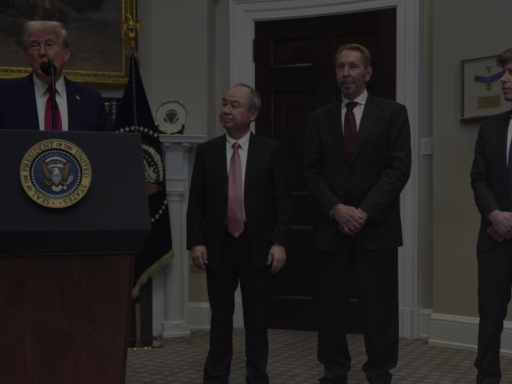The World Economic Forum’s Young Global Leaders are known for their innovative thinking and commitment to shaping a better future. As we step into 2025, they have identified four key initiatives that could have a lasting impact on society.
These initiatives focus on leveraging technology, investing in talent, promoting AI education, and enhancing workforce literacy. By embracing these ideas, businesses, policymakers, and individuals can create a more inclusive and technologically empowered world.

Leveraging Technology to Empower Disabled Individuals
Technology has long been a driver of inclusion, and AI-powered assistive solutions are making unprecedented strides in enhancing accessibility for people with disabilities. Innovations such as Google’s Project Relate in Ghana have helped individuals with speech impairments communicate more effectively, fostering independence and social inclusion.
Beyond communication tools, AI-driven advancements are making a tangible impact:
- Smart prosthetics that adapt to real-time movements.
- Adaptive learning software for personalized education experiences.
- Automated navigation systems that assist visually impaired individuals.
Businesses and policymakers have a unique opportunity to champion universal design principles and ensure that technological advancements serve all members of society.
Investing in African Talent for Global Competitiveness
Africa has one of the fastest-growing youth populations, yet access to digital skills training remains uneven. Addressing this gap is crucial for fostering innovation and ensuring Africa’s role in the global tech economy. Programs like AfricAIED, which integrates AI into educational systems, are equipping young professionals with future-ready skills.
Key factors driving Africa’s digital transformation:
- Expansion of remote work opportunities by global enterprises.
- Growth of AI-driven startups leveraging local expertise.
- Increased investments in tech-focused educational initiatives.
By investing in AI literacy and digital infrastructure, African nations can position themselves as leaders in emerging fields such as fintech, agritech, and renewable energy.
Promoting Universal AI Education to Bridge the Digital Divide
As AI transforms industries, equitable access to AI education is essential to prevent the digital divide from widening. India’s AI education initiative, INDIAai, is at the forefront of providing large-scale AI learning resources, ensuring that even students in remote and underserved communities gain fundamental AI knowledge (Wikipedia).
To democratize AI education, we are seeing:
- Public schools integrating AI courses into their curricula.
- Tech companies launching free AI boot camps and certifications.
- Online platforms offering accessible AI training to underprivileged communities.
AI literacy is becoming as essential as traditional literacy. By broadening AI education, individuals are empowered to harness technology for entrepreneurship, employment, and community development.
Enhancing AI Literacy for the Evolving Workforce
The rapid adoption of AI-driven automation is reshaping job roles across industries. To thrive in this evolving landscape, workers must develop AI literacy skills that complement automation rather than compete with it. Research from Springer highlights the increasing importance of upskilling and reskilling efforts, with vocational programs integrating AI training into their frameworks.
Steps being taken to improve AI literacy include:
- Companies prioritizing AI-awareness training for employees.
- Governments introducing AI competency frameworks.
- Workforce development programs incorporating AI-based skill enhancement.
These efforts ensure workers across different sectors can effectively collaborate with AI systems, securing long-term employability.
The four transformative ideas championed by the Young Global Leaders highlight the critical role of AI and technology in shaping a more inclusive and skilled global society. Whether through empowering disabled individuals, investing in Africa’s workforce, bridging the AI education gap, or preparing workers for an AI-driven future, these initiatives emphasize the importance of proactive adaptation.
Key takeaways
- Investing in digital infrastructure is crucial for inclusive growth.
- Education and policy innovation must align with AI advancements.
- Public-private collaboration is essential to ensure equitable access to technology.
Business leaders, policymakers, and educational institutions have a unique opportunity to turn these visions into reality. By fostering collaboration and prioritizing inclusive innovation, they can ensure that the benefits of AI and technology are shared by all, paving the way for a brighter and more equitable 2025.





